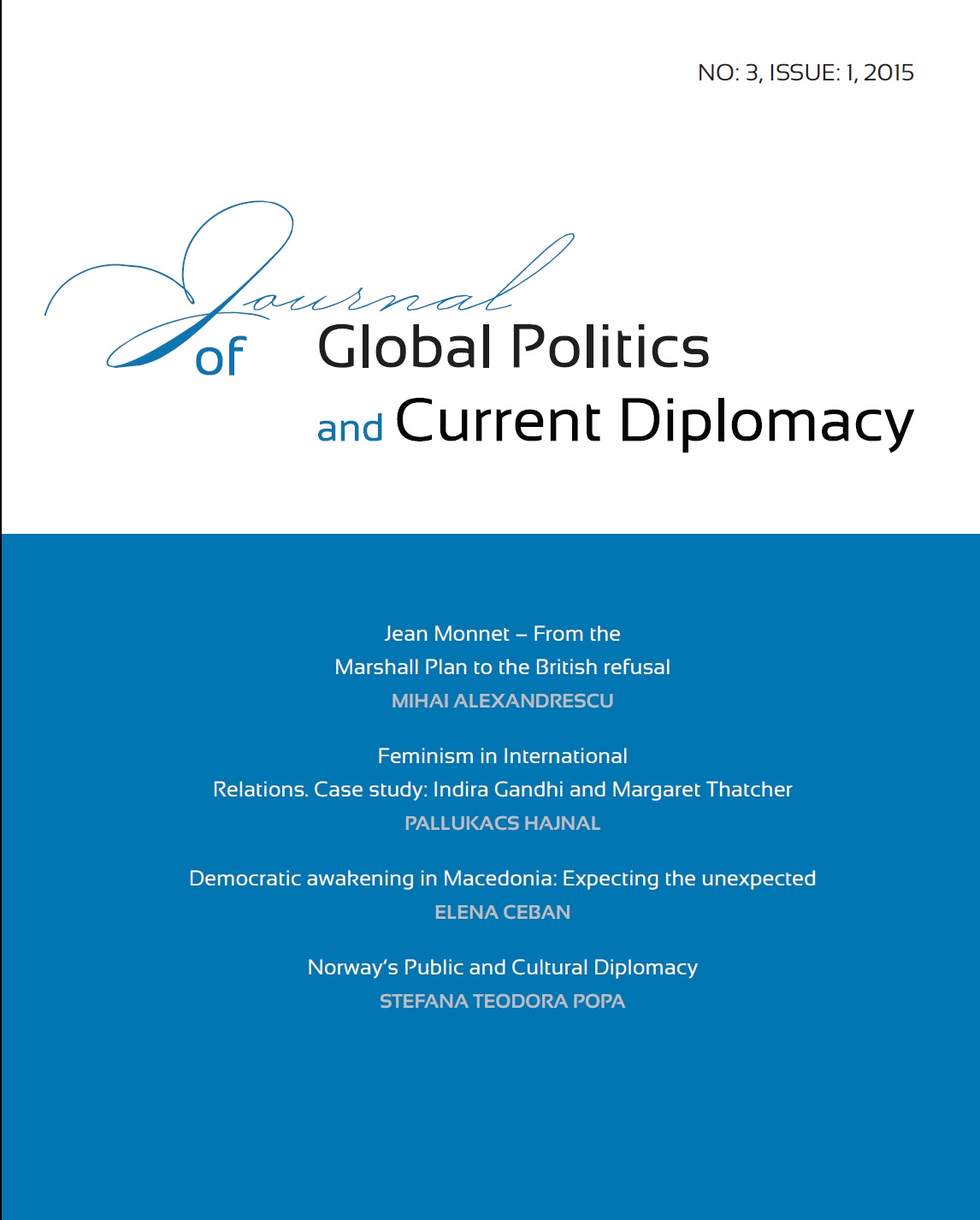Jean Monnet – From the Marshall Plan to the British refusal
Jean Monnet – From the Marshall Plan to the British refusal
Author(s): Mihai AlexandrescuSubject(s): Diplomatic history, History of ideas, Political history, WW II and following years (1940 - 1949), Post-War period (1950 - 1989)
Published by: Centre of European Dialogue and Cultural Diplomacy
Keywords: David Mitrany; Jean Monnet; Schuman’s Declaration; Winston Churchill; Clement Attlee;
Summary/Abstract: During the last interwar years and the first three years of the Second World War, relations between states considerably deteriorated. In 1943, David Mitrany published at Chatham House, his well-known work “A Working Peace System”, in which he expressed his own arguments against the territorial order of future world peace. A new process was needed with three stages: appeasement, reconstruction and reorganization. Furthermore, Monnet found the construction of a supranational entity necessary, which would integrate the common interests of the states, in order to satisfy the needs of the citizens. Monnet’s idea transformed into what we now call the Schuman Declaration. The existence of a ‘high authority’, which would absorb the sovereignty of participant states, determined a blockage in negotiations with Great Britain.
Journal: Journal of Global Politics and Current Diplomacy
- Issue Year: 3/2015
- Issue No: 1
- Page Range: 5-11
- Page Count: 7
- Language: English

